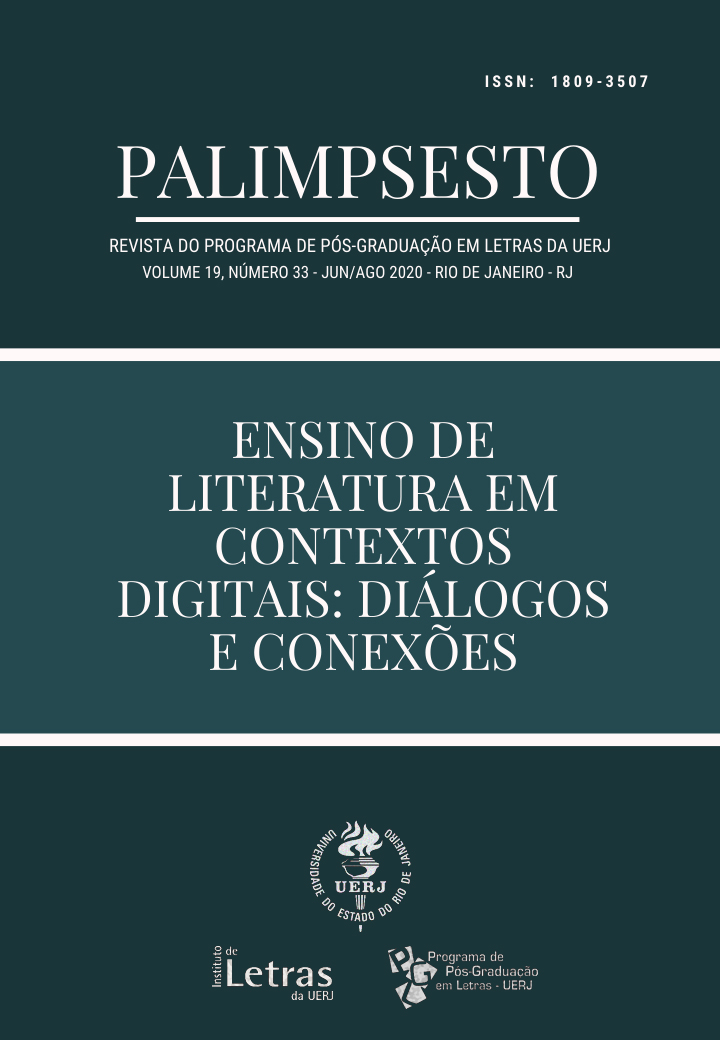Digital Humanities and Social Change: an Interview with Alex Gil
DOI:
https://doi.org/10.12957/palimpsesto.2020.54114Keywords:
Digital Humanities, Decolonial Studies, HumanitiesAbstract
While it is not yet possible to gauge the long-term impacts of the shifts brought on by the experiences of 2020, it seems safe to assume this year will be remembered by the many critical events that precipitated change in the ways humans relate to each other and to our environment. The most far-reaching of those is, of course, the COVID-19 pandemic. However, the Black Lives Matter marches, popular demonstrations against totalitarian governments throughout the world, as well as deeply concerning tipping-points regarding climate change are all part of a collective conversation we feel the urge to engage with. Nearly six months into our own experience with the pandemic in Brazil, after the loss of more than one hundred thousand lives to COVID-19, we at Palimpsesto aim at publishing pieces that not only acknowledge the circumstances under which they were written, but that also engage and produce critical thinking about them. It was within this spirit, and not only considering this issue's theme – “Literature Teaching in Digital Contexts: Dialogues and Connections” – that we approached Dr. Alex Gil and asked him for an interview.
Alex Gil is a well-known scholar in the field of Digital Humanities not only for his work as a Digital Scholarship Librarian at Columbia University Libraries or as a developer of ingenious projects, but also for the fact that he often directs his abilities to produce tools that help promote social change. Dr. Gil has developed and collaborated in several of such efforts, as we discuss throughout our interview. Bearing Witness, one of his most recent initiatives, has been jointly announced by him and Prof. Samuel Roberts (Columbia University) and appears as “an effort to document and interpret the events associated with the novel coronavirus epidemic in the United States as it pertains to racialized minorities”. We strongly recommend that you read more about the Mobilized Humanities interventions in the links available at the end of this piece.
It has been truly delightful to discuss Alex Gil’s projects and to consider how each of us – as students, researchers, and teachers – can work in the humanities to acquire new skills to produce change. The discussion around the place of the university amid this crisis, as an institution, is also one that deeply interests us. Finally, Gil is a prominent Aimé Césaire scholar. Discussing the work produced by this writer and thinker – at a moment when Discourse on Colonialism has just been released in a new Brazilian edition – also seems to be a crucial exercise to try to make sense of our questions – in a local and in a global scale – with a critical eye. We are thankful to Dr. Alex Gil for taking the time to talk to us amid the 2020 chaos as well as for the thought-provoking insights he has brought to us, which we now proudly share with Palimpsesto's readers.
Downloads
Downloads
Published
How to Cite
Issue
Section
License
Palimpsesto journal publishes original articles and reviews in the field of Literature, Language and Linguistics. We also publish mixed and/or thematic issues, with articles and reviews in Portuguese, English, Spanish, and French.
Authors retain copyright and grant the journal the right of its first publication, with the work simultaneously licensed under Creative Commons Attributions License, which allows sharing of the work with an acknowledgement of authorship and initial publication in this journal.

Palimpsesto uses a Creative Commons - Atribuição-NãoComercial 4.0 Internacional license.







